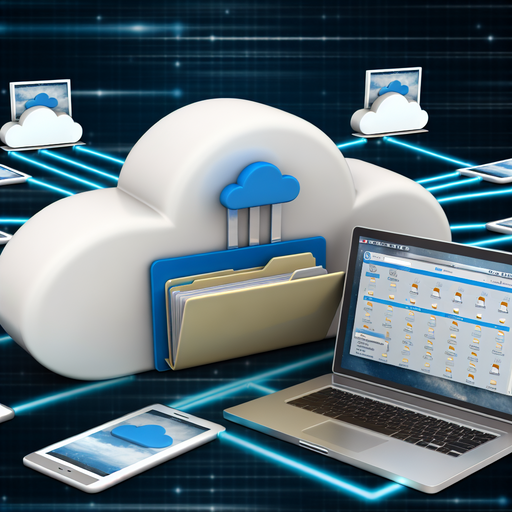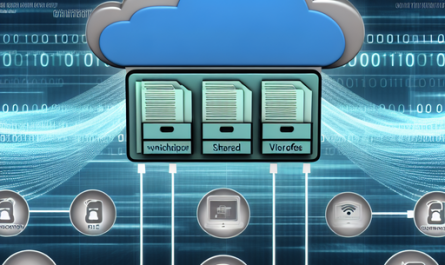Nextcloud and Salesforce: A Powerful Business Integration
Introduction to Nextcloud and Salesforce
In today’s fast-paced business environment, efficient data management and seamless collaboration are critical for success. Two of the most popular tools that help achieve these goals are Nextcloud and Salesforce. Nextcloud is an open-source, self-hosted cloud platform that provides a suite of productivity tools, while Salesforce is a leading customer relationship management (CRM) system. The integration of Nextcloud and Salesforce brings together the best of both worlds, helping businesses streamline operations, enhance collaboration, and drive growth.
What is Nextcloud?
Nextcloud is a robust, open-source platform for file synchronization, sharing, and collaboration. It offers a wide array of features including file storage, calendar management, contact management, and various productivity tools. With its high configurability and strong focus on security, Nextcloud is an excellent choice for businesses of all sizes seeking to maintain control of their data.
Get Nextcloud with 1 TB of storage for just up to €3.99 per month.
Try it now for one month free and risk-free.
What is Salesforce?
Salesforce is a leading cloud-based customer relationship management (CRM) system. It provides a comprehensive suite of tools to manage customer data, sales processes, marketing efforts, and customer support. By offering powerful automation and analytics capabilities, Salesforce helps businesses improve their customer relationships and boost productivity.
The Importance of Integrating Nextcloud and Salesforce
Integrating Nextcloud with Salesforce represents a significant step forward for businesses looking to optimize their workflows and enhance collaboration across teams. Here are some of the key benefits of this integration:
- Centralized Data Management: By linking Nextcloud with Salesforce, businesses can store, access, and manage all their critical data from a single platform.
- Improved Collaboration: Teams can collaborate more effectively with real-time access to documents and customer data.
- Enhanced Productivity: Automation and streamlined processes reduce manual work, allowing employees to focus on more valuable tasks.
- Better Customer Insights: Consolidating data from Nextcloud and Salesforce provides a more comprehensive view of customers, leading to better decision-making.
Key Features of the Nextcloud and Salesforce Integration
The integration between Nextcloud and Salesforce comes with a range of features designed to improve business operations. Some of the key features include:
1. Seamless File Sharing and Storage
With this integration, users can easily store and share files between Nextcloud and Salesforce. This ensures that all team members have access to the most up-to-date documents, improving collaboration and reducing the risk of errors.
2. Real-time Data Syncing
The integration ensures that data is automatically synced between the two platforms in real-time. This eliminates the need for manual data entry and ensures that all information is current and accurate.
3. Unified User Interface
The integration provides a unified user interface, allowing users to manage both Nextcloud and Salesforce from a single dashboard. This simplifies navigation and reduces the learning curve for new users.
4. Customizable Workflows
Businesses can create custom workflows to automate various processes, such as automatically uploading documents to Nextcloud when a deal is closed in Salesforce. This reduces manual work and increases efficiency.
5. Enhanced Security
The integration leverages the robust security features of both Nextcloud and Salesforce, ensuring that your data is protected at all times. This includes encryption, access controls, and regular security updates.
How to Get Started with Nextcloud and Salesforce Integration
Integrating Nextcloud with Salesforce is a straightforward process that can be completed in a few simple steps. Here’s how to get started:
1. Install the Nextcloud Salesforce App
The first step is to install the Nextcloud Salesforce app from the Nextcloud app store. This app acts as a bridge between Nextcloud and Salesforce, allowing the two platforms to communicate with each other.
2. Configure the App
Once the app is installed, you will need to configure it using your Salesforce credentials. This includes setting up API keys and specifying the data you want to sync between the two platforms.
3. Create Custom Workflows
With the app configured, you can now create custom workflows to automate various tasks. This includes syncing data, uploading documents, and creating notifications for team members.
4. Test the Integration
Before fully deploying the integration, it’s important to test it to ensure everything is working correctly. This includes checking that data is being synced in real-time and that custom workflows are functioning as expected.
Case Study: Boosting Efficiency with Nextcloud and Salesforce Integration
Let’s take a look at a case study to see how businesses are benefiting from the integration of Nextcloud and Salesforce.
Company Overview
ABC Corp is a mid-sized company that specializes in providing IT solutions to businesses. They were facing challenges with data management and collaboration, leading to delays and inefficiencies in their operations.
The Challenge
ABC Corp wanted to improve their data management and collaboration processes. They were using both Nextcloud and Salesforce separately, but the lack of integration between the two platforms was causing issues. Employees had to manually transfer data between systems, leading to errors and wasted time.
The Solution
ABC Corp decided to integrate Nextcloud with Salesforce. They installed the Nextcloud Salesforce app and configured it to sync data between the two platforms. They also created custom workflows to automate tasks such as uploading documents to Nextcloud when a deal was closed in Salesforce.
The Results
The integration of Nextcloud and Salesforce had a significant impact on ABC Corp’s operations. They saw a 30% reduction in manual data entry, a 25% increase in team collaboration, and a 20% improvement in overall efficiency. The unified user interface also made it easier for new employees to get up to speed quickly.
Conclusion
The integration of Nextcloud and Salesforce offers a powerful solution for businesses looking to improve their data management and collaboration processes. With features such as seamless file sharing, real-time data syncing, and customizable workflows, businesses can streamline operations, enhance collaboration, and drive growth. By following the steps outlined in this article, you can get started with the integration and start reaping the benefits for your business.
FAQs
1. What are the system requirements for integrating Nextcloud and Salesforce?
To integrate Nextcloud and Salesforce, you need to have a Nextcloud instance (self-hosted or through a service provider) and a Salesforce account. Ensure that your systems meet the latest requirements for both platforms, including supported operating systems, browser versions, and API compatibility.
2. Is the Nextcloud Salesforce app free?
The Nextcloud Salesforce app is available in the Nextcloud app store. However, depending on your use case and the level of support you require, there may be additional charges. It’s best to check the app store for detailed pricing information.
3. How secure is the integration between Nextcloud and Salesforce?
The integration is designed with security in mind. Both Nextcloud and Salesforce provide robust security measures, including encryption, access controls, and regular updates. Additionally, the integration leverages the security features of both platforms to ensure that your data is protected at all times.
4. Can I customize the workflows in the Nextcloud Salesforce integration?
Yes, the integration allows you to create custom workflows to automate various tasks. This includes syncing data, uploading documents, sending notifications, and more. You can customize workflows to suit your specific business needs.
5. What kind of support is available for the Nextcloud Salesforce integration?
Support for the Nextcloud Salesforce integration is available through the Nextcloud and Salesforce communities, as well as through professional support services offered by both companies. Additionally, the Nextcloud app store may offer documentation and guides to help you get started with the integration.



